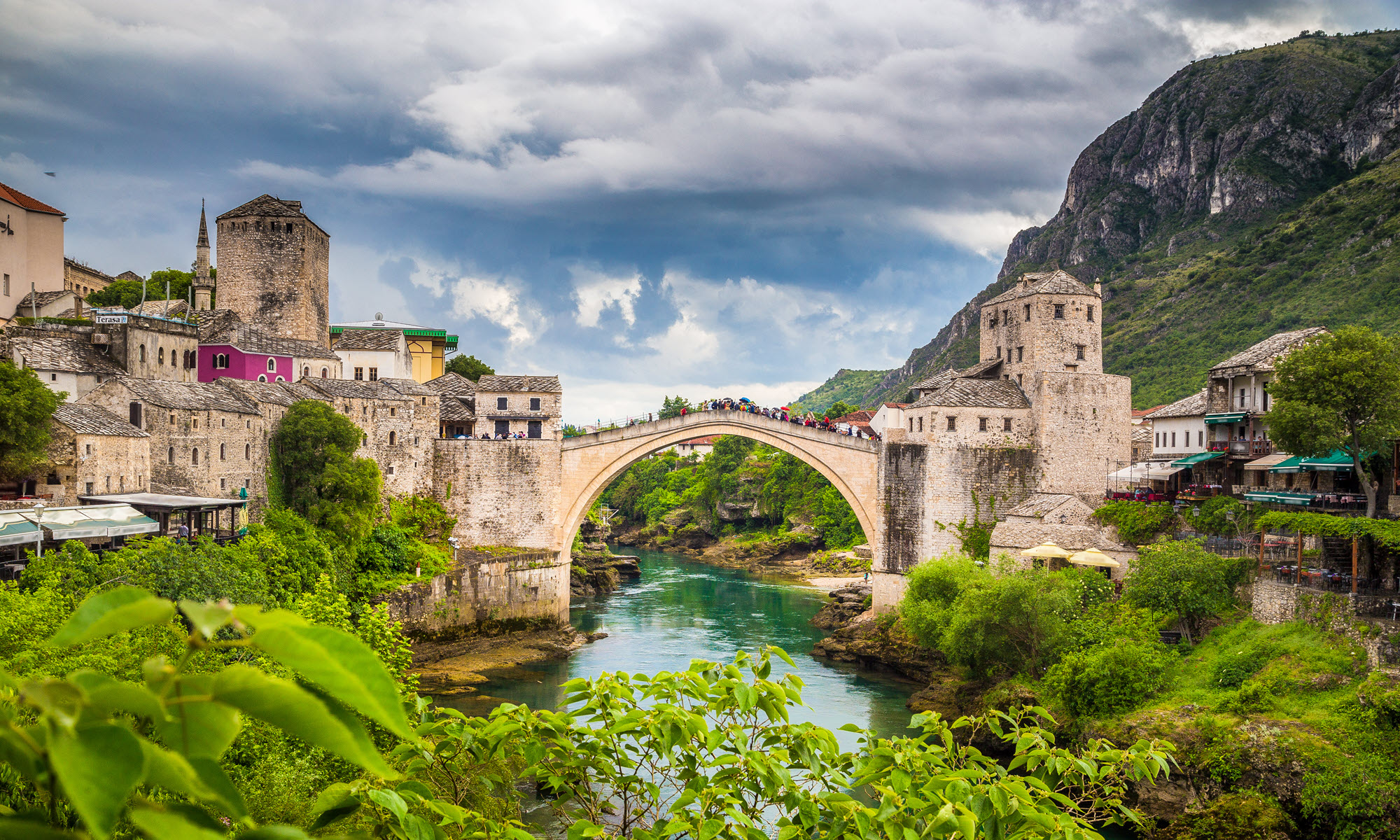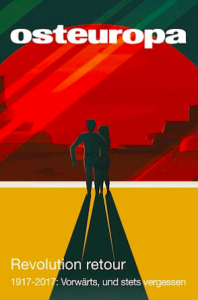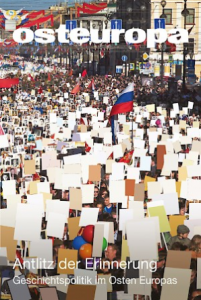(Christian Hörbelt)
The Russian attack, the annexation of the Crimea is the Russian way to say `good bye` to Ukraine. After the Maidan protest in 2014 the Russian government understood: Those people, the Ukrainian people, are not any more controllable – they left the Russian way of living. It is true. Ukrainians had two so-called revolutions: The Orange one in 2004 did not bring the change the people wished for. However, the Russian government was able to install one of them instead, Janukowitsch. He empowered his family members and built up a harsh clan structure, based on corruption and feudalism. The Ukrainians rebelled again against the political elite, but this time in such a brutal and long-winded way that the former president Janukowitsch had to flee from them. Russia just used the moment of destabilization of Ukraine to conquer Crimea – it was the Russian window of opportunity, and the professional way of annexing the region showed that it was probably planned well in advance. Contrasting to the hybrid war in the east, Russia just wanted to weaken the Ukrainian state, mobilizing his own people against Ukrainians, to stay behind Janukowitsch and his regime. It is crazy: But the plan of Putin worked. Even the sanctions from the EU and USA are not bringing the wishful change. The promised effect that it would put some pressure on the Putin regime backfired: More and more Russians are staying behind Putin and his followers. Putin is playing like a chess player. Even though the loss of Ukraine is as painful as to lose the Queen figure, he managed to get the most benefits from this situation. And it should be noted: Russian foreign politics are always interim politics too. The Putin Regime uses the foreign affairs to actively promote their own goals within Russia.
His benefits of the Ukrainian crises are:
- Annexation of Crimea.
- Strengthening his regime within Russia.
- Strengthening his position as “no alternative to this guy”.
- Weaken European Integration process.
- Controlling “frozen conflict”, which means influence in Ukraine.
- Re-installing a somewhat global role in international relations.
To sum up: The Putin Regime is making profit, but not to the Russian people or the state. However, what Russia did to Ukraine was a weird and painful good bye kiss. The Putin Regime understood quite clearly, that the Ukrainians are not one of them anymore, of the closed society, of the enslaved society. The Ukrainian people are not under Russian influence anymore – they lost it with the insane Janukowitsch. At least, it was just a question of time. The influence of western society, the wish to change and the uprising Ukrainian identity was like a shot in the neck for the Russian cultural dominance in this region. Russia said good bye, took the prestige fillet Crimea and hurt the country, so that the EU and the USA have to pay a high price for a free Ukraine.
Russia is a closed society
I had the chance to talk with politicians, activists and of course normal people. To safeguard my sources of information I will use no names, only titles – unfortunately, the situation in Russia gives me no other option. He who is against the mainstream is against Russia. He who is against Putin is against Russia. He who is against the political decisions is against Russia. The answers you get are totally weird when you ask the people about Putin and his regime. Here is a typical conversation:
I: “Do you like Putin?”
Russian: “Yes, he is making us strong! We are surrounded by the NATO, the USA wants to weaken us. It is good that he brought back Crimea. He takes care that we get a good life.”
I: “But he is stealing your oil, gas and everything. He is not fighting against corruption. Where does he make you stronger? Is your income raising?”
Russian: “Ok, maybe he is not perfect. But it was always like this. What should we change? Putin is nowadays the best option of the worst.”
I: “So, your life is not better. You have no legal safety, the police is doing what it wants. The health system is smashed. Where are you strong?”
Russian: “I know, here are many problems. But Putin is making us stronger. He is not the only solution to all the world’s problems. We are strong again.”
I: “But you are not strong! Where is your individual wish to have a better life?”
It continues something like this: next to Putin there is no alternative. But no Russian put a question mark why there is no other option.
The Professor and the Opposition: They call him Liberast
I talked with a professor from the Federal Ural University. He is teaching Journalism history and has a real critical point of view about many Russian politics: “I am telling my students: Do not work in this media business. There is no way to work as a free journalist.” He remembers the murdered journalists like Anna Politkowskaja or the most popular politician of the opposition Boris Nemzow. The list of those who died in mysterious circumstances is long. Most of the cases where never solved. The German NGO “Reporter ohne Grenzen” puts Russia at 152 of 180, in the free press ranking. “There is no environment for critical thinkers. The government silenced them, puts such a pressure that they stop to work, flee out of the country or in the worst cases kills them.” The professor has his life in danger, because he is a public person. He is writing statements in Nowaja Gazeta and other media, holding speeches against the regime and – most dangerous – says what he thinks in public life. “Strangers are blaming me in the internet and in public as “Liberast”.” Liberast – it is a fantasy word, a mix from the Russian word Liberal and Pederast. People are blamed as liberast when they are promoting European values – or when they are against the Russian Regime, against Russian decisions and thus against the Russian people. Also it is a mix of homophobia (pederast are handled as gays) and nationalism in a pro authoritarian system with “clear values” against “universal values and human rights”.
Opposition activity can destroy lives
Also for people who are active in politics, even locally, living is dangerous. One of them is active since the 1990s and he says that the pressure was never so high like nowadays. “I lost already three jobs because of my political activities. Me and my party members want to give another option”, the opposition-politician says. He was a former manager in a big company, but had to leave the company after the state controller found some particular mismatches, which did not existed: “My boss tried to hold me, but the pressure increased from month to month. So, he asked me to leave”, and he had to find another job. “But also when we are having meetings, the police comes and gives us random fines.” So, when they had a meeting, inside of a building, a stranger crossed a red traffic light near the place, the police blame the meeting organization for this, saying the organizer has to keep order – he had to pay 20.000 Rubles, or go to court, to a hearing he can only lose. “It costs not only a lot of money, it can also bring someone into prison if you have some fines. They do not kill us directly, but they try to destroy us slowly.” The opposition-politician looks in my eyes and I caught a moment of fear, but the next moment he adds: “But no, I have to fight. I have now enough financial freedom because of the flats I own. I have to do it for my kids, the next generation”, and then he had to go, to another political meeting.
Shall they swim against or with the current?
Also for people who are not living in a mainstream way, as for example a lesbian group in St. Petersburg, their way of living is more and more restricted, especially after the “law against homosexual propaganda”. “If we are kissing in public, behaving like a couple, people not only look at us: they attack us with words I do not want to repeat”, one of them says, with short blond hair. “But we do not care. Nobody needs to tell us how to live, how to behave.” But they have to nod when I asked if the pressure rose since the Ukraine conflict. “Yep, we have more and more fear to be victims of some crazy guys.” However, the situation seems to be not as cruel as to feeling that someone would kill them, but more like this: He who is not marching with the mass is trampled by it. An example named Gulag Perm-36 can be used. It is located just one hour away of the city Perm. The museum was for a long time managed by the organization Memorandum, one of the last bastille of a free Russian civil society. The Russian state made so many harsh measures against the museum and its managers that they had to give up. Nowadays it’s the state managing this special museum. It is the last standing Gulag, open for the public. Perm-36 was a part of the then preferred terror system, which chose randomly who would be chopped up. Such a gulag system was established under Lenin, used by Stalin for his so-called “industrialization” or in another words to be used as slavery camps. Stalin also created the myth, that without those gulags the war had not been won. In the Soviet Union till the late 1980s there was still slavery in the normal prisons for the wood industry. However in Russia, there was never something like a critical review of the history like the Germans did. Memorandum tried to show to normal people the real face of the gulag system, that it destroyed life, that is was a tool of the authoritarian rulers, that Stalin was a bad man. Nowadays, the state is retelling the history: No, this gulag system was really useful, it contributed to the victory – the positive is higher than the negative.
Russians want to empower themselves: Minorities are again in danger
“There is a brain drain. So many young and intelligent people are fleeing out of Russia”, claims the professor, showing some statistics. And the brain drain is real: Not only are intellectuals leaving the country, but also more and more “businessmen”. “Russia gives no space for a safe law process or a legal frame. There is no judicial safety”, says one young lawyer of tatarian origin from Kazan. He works mostly with cases between companies, where the corruption scale is not that high, but still present. “If you want something, you can buy it always. It depends on your pocket. Especially in private law. It is a mess”, he says and adds, that the situation became worse and worse. The climate is not pro-investments. Also before the sanctions where enforced, the investment climate was declining. “Russia is not a free country”, the lawyer says and stresses that this is especially for all of those, who are not pure Russians. “I am a Tatar. But I am also a Russian. But I look like a pure Tartar. I am practicing my Muslim tradition and religion.”
No democracy without democrats?
Russia is on a wrong path. Putin is not making Russia stronger. He weakens the nation, every day by putting journalists in prison and by not fighting corruption. He is fighting against democracy. The Russian people can be democrats. There were also democratic movements before the Revolution of 1917 started, but were brutally smashed by Lenin and his so-called comrades. The history of Russia would have been totally different if Lenin never came to power. But Russia is now for more than four generations in a soviet system, and before that it was only a feudalistic society. The Russian people haven’t yet have a clear chance to live the European values and to live like Europeans. For me they are Europeans, but without the possibilities to live like the “western” people do. But there are many challenges. Starting with the education of the people, which it’s still like didactic teaching without free thinking. Secondly, the countryside is not connected to the rest of the world, internet is missing as well as structural order. Thirdly, corruption and the missing rule of law is the biggest challenge for society. There are many other fields, like the environmental policy or health care system – maybe Putin makes the state itself stronger, but on the cost of the people.
The Ukrainian case shows: If the Ukrainian people are successful, there can be a working democracy, with active people, engaged people and democratic people – this would be the biggest threat for the Putin Regime. Now he can keep society together with pressure, fear, propaganda of a “successful” foreign policy and a bit of terror. But for how long? There have been various small protests. He can put people in prison, forbid them to speak in public and weaken their organization – but the minds are free. Still, there is a possibility to change in Russia. It is only a matter of time. That’s why Europe has to help Ukraine to become a free European State. If Ukraine can make it – why not Russia? I believe in the Russian people.
[Die Verantworlichkeit für die Inhalte des Artikels liegt bei dem Autor. Die auf den gelinkten Seiten wiedergegebenen Meinungsäußerungen und/oder Tatsachenbehauptungen liegen in der alleinigen Verantwortung der jeweiligen Autorin oder des jeweiligen Autors und spiegeln nicht die Meinung des stipendiatischen Arbeitskrieses Osteuropa der FES wider.]


